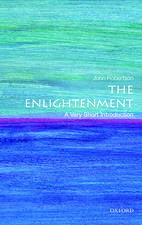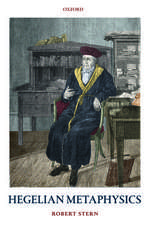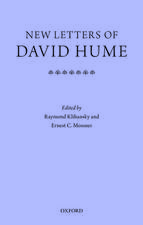Space, Geometry, and Kant's Transcendental Deduction of the Categories
Autor Thomas C. Vincien Limba Engleză Hardback – 15 ian 2015
Preț: 580.17 lei
Preț vechi: 832.72 lei
-30% Nou
Puncte Express: 870
Preț estimativ în valută:
111.02€ • 118.71$ • 92.56£
111.02€ • 118.71$ • 92.56£
Carte tipărită la comandă
Livrare economică 07-14 aprilie
Preluare comenzi: 021 569.72.76
Specificații
ISBN-13: 9780199381166
ISBN-10: 019938116X
Pagini: 264
Dimensiuni: 238 x 177 x 22 mm
Greutate: 0.48 kg
Editura: Oxford University Press
Colecția OUP USA
Locul publicării:New York, United States
ISBN-10: 019938116X
Pagini: 264
Dimensiuni: 238 x 177 x 22 mm
Greutate: 0.48 kg
Editura: Oxford University Press
Colecția OUP USA
Locul publicării:New York, United States
Recenzii
[H]is primary -- and very substantial -- contributions are to give a deep new analysis of Kant's theory of geometry, provide a novel interpretation of the relation between self-consciousness and apperception and most of all to offer a moderating and mediating voice in the conceptualist-nonconceptualist debate. For these reasons, his book is very much worth reading and engaging.
...Vinci has successfully produced a work that will push students of the B-Deduction, and of the CPR in general, to think more carefully about how some of the more complicated portions of Kant's text can be connected.
...Vinci has successfully produced a work that will push students of the B-Deduction, and of the CPR in general, to think more carefully about how some of the more complicated portions of Kant's text can be connected.
Notă biografică
Thomas C. Vinci (B.A, Toronto; Ph.D, Pitt.) has spent 35 years in the Philosophy Department at Dalhousie University, from which he retired as Professor in 2012. The author of Cartesian Truth (OUP 1998), he has also published on Aristotle, Descartes, Locke, Leibniz and Kant, and in contemporary epistemology, philosophy of science and decision theory. He is the organizer of the Atlantic Canada Seminar in Early Modern Philosophy and is married, with three children, and lives in Atlantic Canada.














